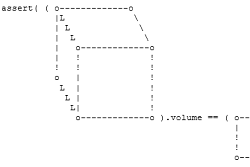CppCon 2014 Rebuilding Boost Date-Time for C++11--Jeff Garland
 While we wait for CppCon 2015 in September, we’re featuring videos of some of the 100+ talks from CppCon 2014. Here is today’s feature:
While we wait for CppCon 2015 in September, we’re featuring videos of some of the 100+ talks from CppCon 2014. Here is today’s feature:
Rebuilding Boost Date-Time for C++11
by Jeff Garland
Summary of the talk:
Boost date_time is a widely used C++ library originally released in 2001 -- including being the basis for elements of the chrono library in c++11. While the library interface has stayed stable for more than a decade, the world around it has changed with the standard library and language changing. It is time for the library tobe rewritten to account for c++11.
The lecture describes in detail the design decisions and changes to the library for C++11. More generally it describes elements of design for a small valuetype library. Many of these considerations involve new features of C++11 and how they should be used. This includes noexcept, move construction/assignment (R-values), constexpr, enum classes, and user defined literals.

 Episode 6 of CppCast, the only podcast by C++ developers for C++ developers. In this episode Paul Fultz II joins Rob Irving to talk about his upcoming C++Now talk which will focus on the two C++ libraries hes created Fit and Tick.
Episode 6 of CppCast, the only podcast by C++ developers for C++ developers. In this episode Paul Fultz II joins Rob Irving to talk about his upcoming C++Now talk which will focus on the two C++ libraries hes created Fit and Tick. While we wait for CppCon 2015 in September, we’re featuring videos of some of the 100+ talks from CppCon 2014. Here is today’s feature:
While we wait for CppCon 2015 in September, we’re featuring videos of some of the 100+ talks from CppCon 2014. Here is today’s feature: While we wait for CppCon 2015 in September, we’re featuring videos of some of the 100+ talks from CppCon 2014. Here is today’s feature:
While we wait for CppCon 2015 in September, we’re featuring videos of some of the 100+ talks from CppCon 2014. Here is today’s feature: Demonstrating the power of C++11 user-defined literals:
Demonstrating the power of C++11 user-defined literals: While we wait for CppCon 2015 in September, we’re featuring videos of some of the 100+ talks from CppCon 2014. Here is today’s feature:
While we wait for CppCon 2015 in September, we’re featuring videos of some of the 100+ talks from CppCon 2014. Here is today’s feature: